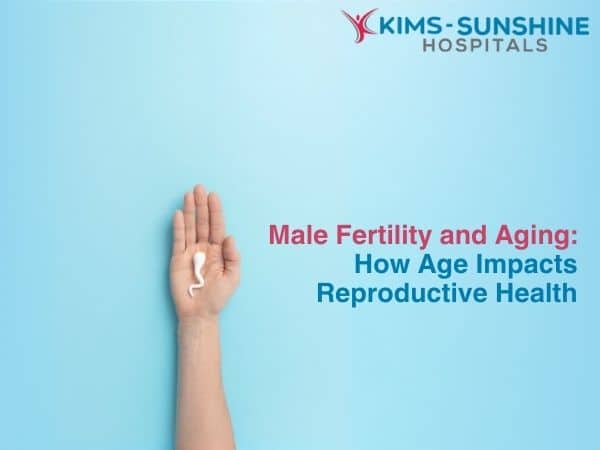
Male Fertility and Aging: How Age Impacts Reproductive Health

It is a very well known fact that women need to keep a close watch on their fertility as there is a great drop in the count and quality of eggs around the age of 35. For men however, the age is somewhat hazy – about 40 or higher and men may not be as fertile as when they were say 30 years of age. Many studies have shown that men are the most fertile when they are between 25-29 years of age. This is because the quality of sperm declines after a man turns 40. Men do make millions of sperm cells every day, but for conception to happen, quality always trumps quantity.
Impact Of Ageing On Male Reproductive Health And Fertility
Some of the major issues older men face when they want to father children include the following-
- Sperm quality goes down- Sperm cells have genetic material that gets passed down to the next generation. But with advancing age, this genetic material may have more errors and associated issues (called fragmentation of DNA) which means there is a higher risk of children being born with birth defects or genetic abnormalities.
- Lifestyle related disorders can strike men themselves – like diabetes, hypertension, sexual dysfunction of any kind, injury or having to take certain medication which can negatively impact sperm themselves.
- Semen is the whitish fluid that helps carry the sperm into the vaginal canal. It contains nutrition and hormones for sperm to successfully fertilise an egg after intercourse. Low quality semen can also affect fertility.
- We will give you a number to deal with here- 15 million sperm per ml is a decent number to have. Any lower and you may have issues is what a fertility specialist will tell you.
How To Boost Male Fertility And Sperm Count In Your 40s
There is no need to get real fancy with methods here. Some are really basic lifestyle components, but let us look at what you can do to possibly increase or retain fertility as you age-
- You should aim to get good quality sleep – around 7-9 hours every night.
- You should be physically active – listen to your workout watch or bracelet – 150 minutes per week and higher is a good number.
- Men need to stop drinking too much and smoking a lot – quitting is very good for your sperm actually. Some studies have shown a direct link between high drug /alcohol consumption with lower quality of sperm or semen in men.
- Some medications have to be avoided at all costs – like antidepressants, anti-psychotics, steroids, hormones like testosterone, methadone, hormone antagonists, antibiotics etc. Sperm count and quality are low as long as you take these medicines but it should improve once you stop.
- Eating good quality food which contains lots of fresh produce can help as they are rich in antioxidants which prevent DNA fragmentation associated with aging.
- Staying at a healthy weight is good for your swimmers and joints too. This means consuming good fats and cutting out bad fat.
- You should not consume too much of any product that contains soy or oestrogen like molecules.
- Minerals like zinc and Vitamin B, D and C are very important, though we don’t know why exactly.
- The doctor may also prescribe some drugs to help you improve a low sperm count – like hormonal or any other kind of synthetic drug.
Conclusion
Aging hits fertility in women much more than men, but for men it is not as irreversibly set in stone. It is hence a good idea to follow some basic lifestyle pointers which can help you father children without any major issues in the future. You should talk to a fertility specialist if you plan on starting a family soon. Remember this- taking care of your health in general will mean better chances of becoming a parent soon!
Frequently Asked Questions
At what age does fertility in males begin to decline?
For males, it can be anywhere between 40-45 years of age, when there is marked decrease in quantity and quality of sperm.
Can older men conceive healthy children?
Yes, we have all read of very old men in their 70’s or 80’s fathering children but their partner may have been very young (like below 25). But this is not true for the majority of the population and these cases can be regarded as exceptions.
What lifestyle changes can help improve male fertility with increasing age?
Eating and sleeping well, leading an active life and not being exposed to major chemicals can all ensure that your fertility does not get adversely affected as you age.
Does ageing affect how genetic conditions are passed down?
Yes, DNA fragmentation increases with age as our cellular machinery declines. This can in turn cause an increase in children being born with genetic issues.
Can fertility treatments help older men father children?
Definitely, yes. IVF with ICSI (Intracytoplasmic Sperm Injection) and ART are very helpful on this front.

Dr. Reena Orkey
MBBS, MS (OBG & Gyn)
Consultant Obstetrician & Gynaecologist
Fertility specialist, having 22 years of experience in dealing with high-risk pregnancy.
Subscribe to our Newsletter






